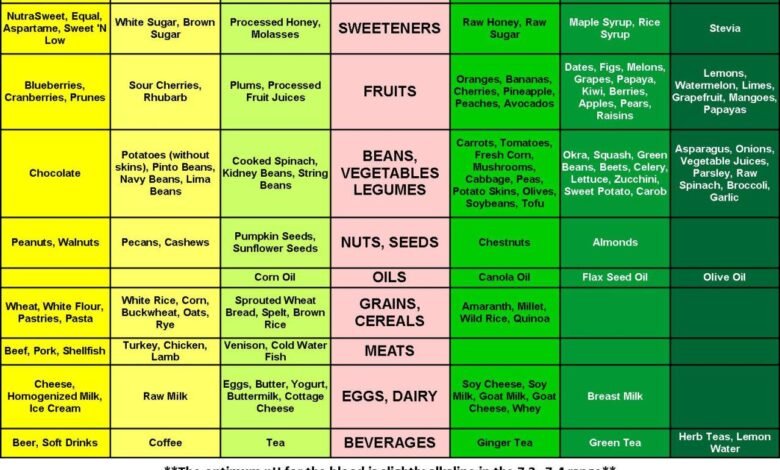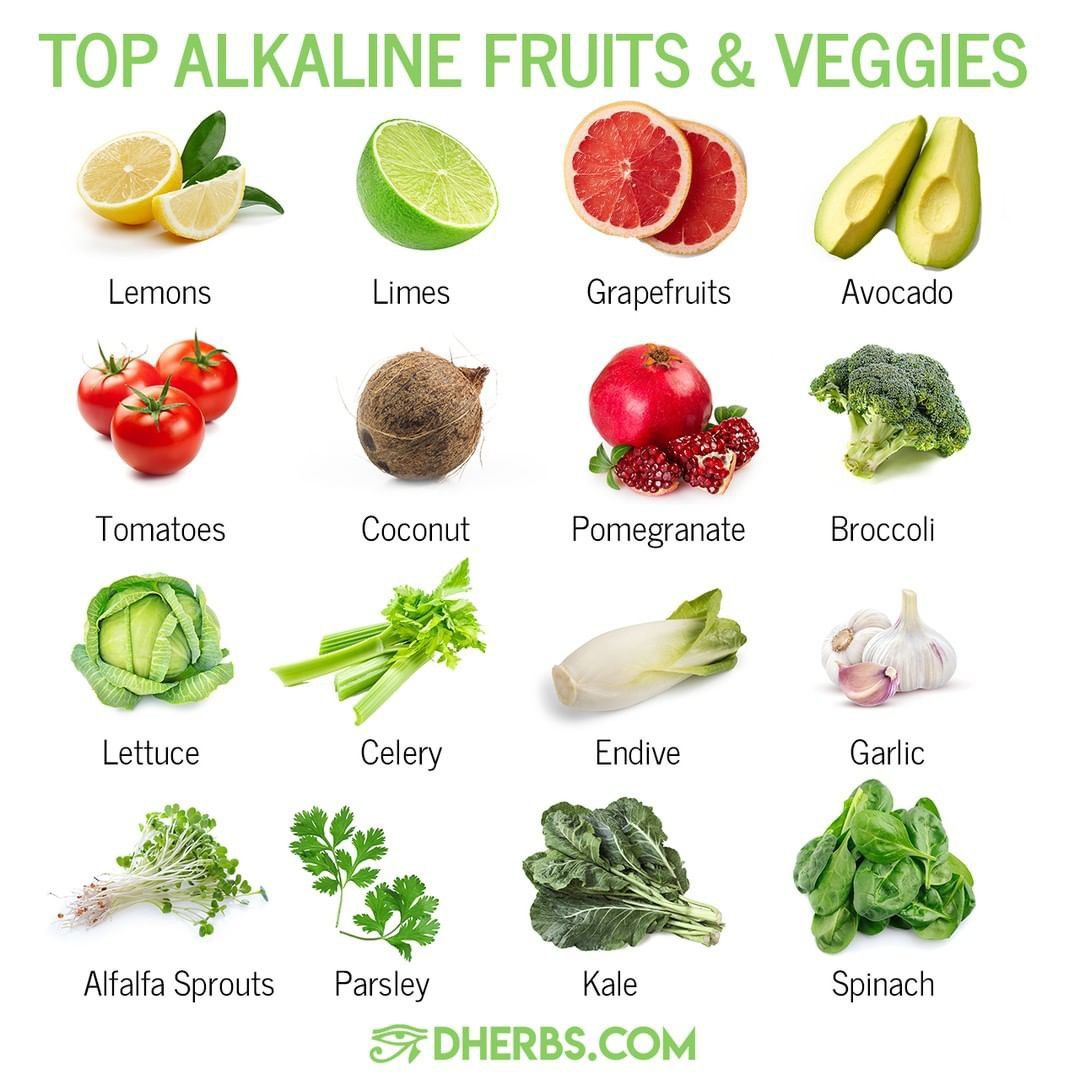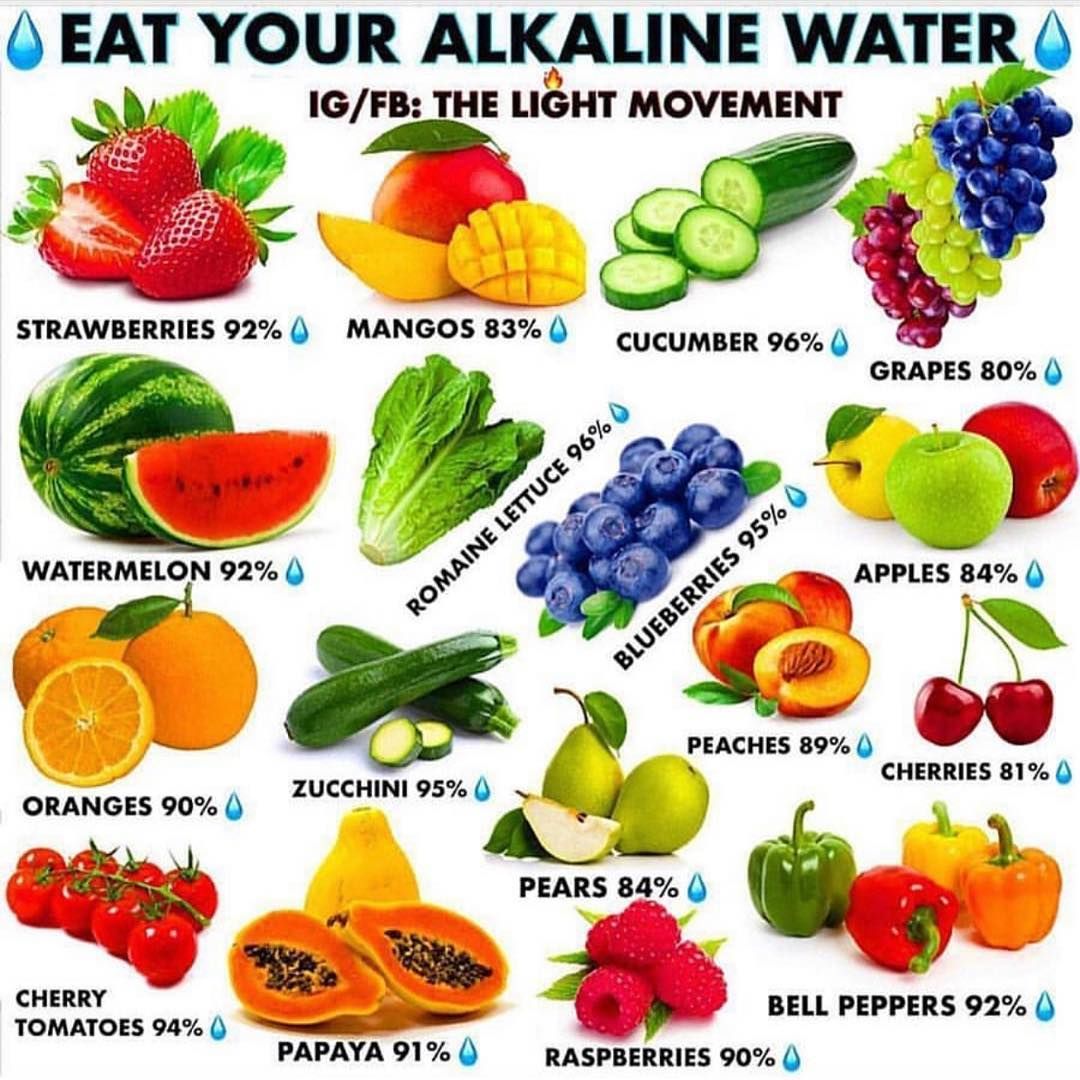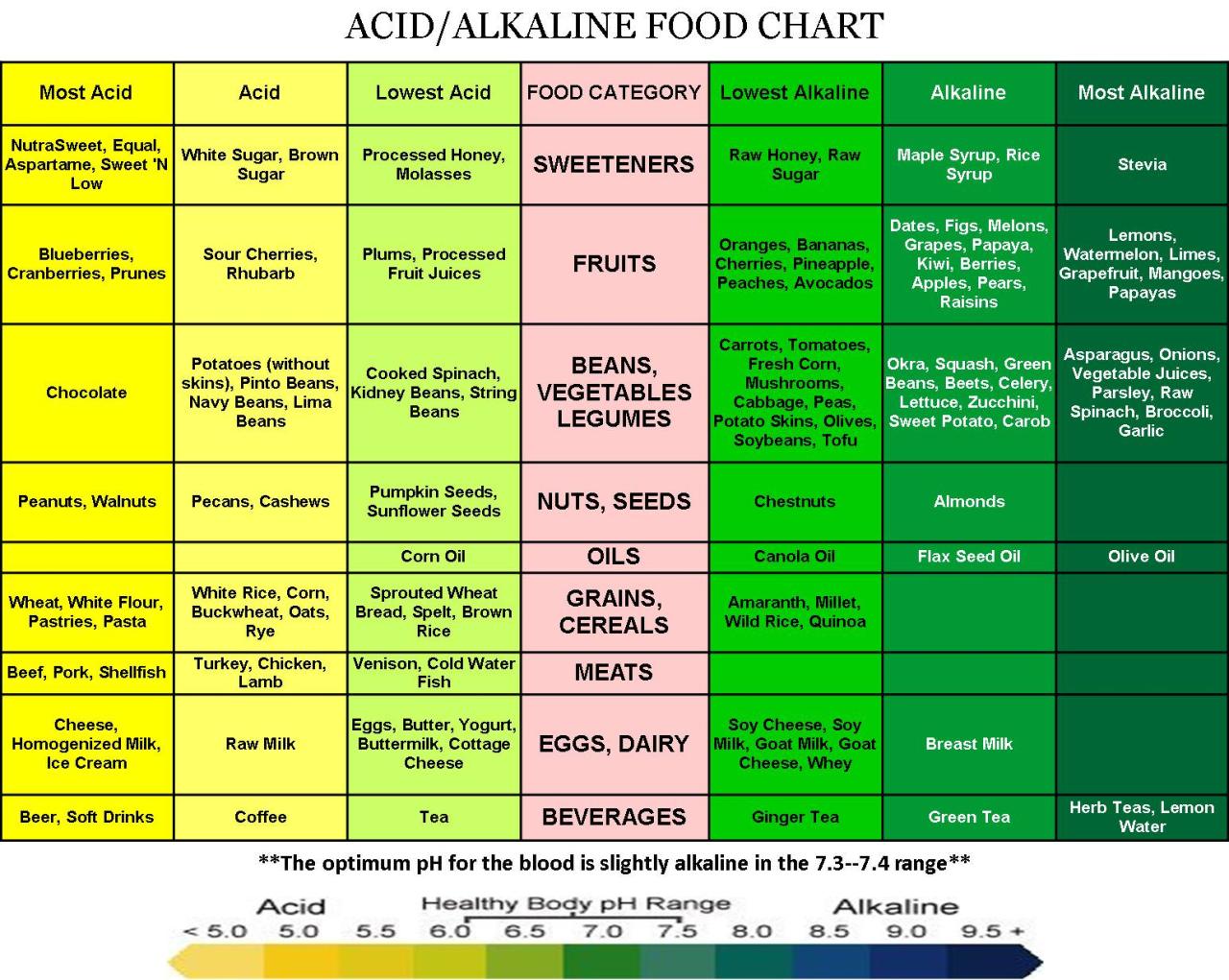
Eating Fruits and Vegetables: Boosting Alkalinity for Kidney and Heart Health
Eating fruits and vegetables increases alkalinity protecting kidneys and heart, a concept gaining traction in the health and wellness world. This idea hinges on the notion that maintaining a balanced pH level in our bodies is crucial for overall well-being.
While our bodies naturally regulate pH, a diet rich in fruits and vegetables, known for their alkalizing properties, can contribute to this delicate balance. This can have positive implications for our kidneys and heart, two vital organs that play a critical role in our health.
The kidneys, responsible for filtering waste and regulating fluids, can benefit from an alkaline environment. This is because acidic waste products can stress the kidneys, potentially leading to issues over time. An alkaline diet, rich in fruits and vegetables, can help neutralize these acids, easing the burden on our kidneys.
Similarly, heart health can be positively impacted by alkalinity. Studies suggest that chronic inflammation, often linked to acidity, may contribute to cardiovascular problems. By promoting an alkaline environment, a diet rich in fruits and vegetables may help reduce inflammation and contribute to a healthier heart.
The Link Between Diet and Body pH
Maintaining a balanced pH level in the body is crucial for optimal health and well-being. The pH scale measures the acidity or alkalinity of a substance, with a range from 0 to 14. A pH of 7 is neutral, while values below 7 indicate acidity and values above 7 indicate alkalinity.
The body strives to maintain a slightly alkaline pH, typically between 7.35 and 7.45, for proper functioning of various organs and systems. This balance is known as acid-base homeostasis.
The Impact of Diet on Body pH
Our diet plays a significant role in influencing the body’s pH. Certain foods can contribute to acidity, while others promote alkalinity. The consumption of fruits and vegetables, in particular, can help to increase the body’s pH, promoting an alkaline environment.
Fruits and vegetables are rich in minerals such as potassium, magnesium, calcium, and sodium, which act as buffers, helping to neutralize excess acids in the body. The high water content in these foods also contributes to flushing out acidic byproducts through urine and sweat.
Examples of Alkalizing Fruits and Vegetables
Here are some examples of fruits and vegetables known for their alkalizing properties:
- Fruits:Lemons, limes, oranges, grapefruits, bananas, apples, pears, berries, melons
- Vegetables:Broccoli, spinach, kale, asparagus, Brussels sprouts, cucumbers, celery, carrots, beets, green beans
It’s important to note that the body’s pH is a complex system influenced by various factors, including diet, lifestyle, and overall health. While fruits and vegetables can contribute to a more alkaline environment, it’s essential to adopt a balanced diet and consult with a healthcare professional for personalized advice.
Alkalinity and Kidney Health
The kidneys play a vital role in maintaining the body’s delicate acid-base balance, ensuring optimal health and function. An alkaline diet can support kidney function and potentially mitigate the risk of kidney-related complications.
Kidney Function and pH Balance
The kidneys are responsible for filtering waste products and excess fluids from the blood, producing urine. This process involves maintaining the body’s pH within a narrow range, typically between 7.35 and 7.45. The kidneys achieve this balance by regulating the excretion of hydrogen ions (H+) and bicarbonate ions (HCO3-), which are crucial for maintaining pH levels.
How an Alkaline Diet Supports Kidney Function
An alkaline diet, rich in fruits and vegetables, can help maintain a healthy pH balance and support kidney function. This is because fruits and vegetables contain alkaline minerals like potassium, calcium, magnesium, and sodium, which help neutralize excess acidity in the body.
It’s amazing how simple changes like eating more fruits and vegetables can make a big difference for your health. The increased alkalinity they provide can protect your kidneys and heart, which is a huge win! Speaking of wins, I’m looking for some advice on how to navigate a job share situation that’s no longer working for me – check out this helpful thread on “Ask We Are Teachers” ask weareteachers help i dont want to job share anymore.
Anyway, back to those fruits and veggies – they’re definitely worth incorporating into your diet!
When the body is less acidic, the kidneys don’t have to work as hard to eliminate excess acid, potentially reducing stress on the organs and contributing to overall kidney health.
It’s amazing how simple changes like boosting your intake of fruits and vegetables can have such a positive impact on your health. Not only do they provide essential vitamins and minerals, but they also help to alkalize your body, which is crucial for protecting your kidneys and heart.
This reminds me of the recent news about Ukraine’s president urging sanctions against Russia before a possible invasion, not after. Just like preventative measures are vital in international affairs, proactive steps towards a healthier lifestyle, like incorporating more fruits and vegetables into your diet, can make a world of difference in the long run.
Research Findings on Fruits, Vegetables, and Kidney Health
Several studies have linked fruit and vegetable consumption to improved kidney health. For example, a study published in the
- American Journal of Clinical Nutrition* found that individuals who consumed a diet high in fruits and vegetables had a lower risk of developing chronic kidney disease. Another study, published in the
- Journal of the American Society of Nephrology*, showed that a higher intake of potassium, a mineral found in abundance in fruits and vegetables, was associated with a reduced risk of kidney stones.
Alkalinity and Heart Health

The link between diet and heart health is well-established. While many factors contribute to cardiovascular disease, a diet rich in fruits and vegetables, which promotes alkalinity, can play a significant role in reducing risk.
Acidity and Heart Disease
An acidic environment in the body can contribute to the development of heart disease. This acidity can lead to inflammation, oxidative stress, and damage to blood vessels.
Alkaline Diet and Heart Health
An alkaline diet, rich in fruits and vegetables, can help to neutralize excess acidity in the body, potentially reducing the risk of cardiovascular issues. The abundance of antioxidants, vitamins, and minerals in these foods plays a crucial role in promoting heart health.
Examples of Fruits and Vegetables that Contribute to Heart Health
Fruits and vegetables provide essential nutrients that contribute to heart health. Here are some examples:
- Berries:Rich in antioxidants, berries help protect against oxidative stress and inflammation, both linked to heart disease.
- Citrus Fruits:Excellent sources of vitamin C, citrus fruits support healthy blood vessels and reduce the risk of blood clots.
- Leafy Greens:Packed with vitamins, minerals, and antioxidants, leafy greens like spinach and kale promote healthy blood pressure and reduce inflammation.
- Tomatoes:Rich in lycopene, a powerful antioxidant, tomatoes have been linked to reduced risk of heart disease.
- Avocados:A good source of healthy fats, avocados can help lower bad cholesterol and improve blood vessel function.
Dietary Considerations: Eating Fruits And Vegetables Increases Alkalinity Protecting Kidneys And Heart

Adopting an alkaline diet doesn’t require drastic changes; it’s about making mindful choices that gradually shift your food intake towards a balance of alkaline-rich foods. This section explores practical tips for incorporating more fruits and vegetables into your daily diet and addresses potential challenges that may arise.
Sample Meal Plan
A sample meal plan that emphasizes fruit and vegetable intake can be a great starting point for individuals looking to adopt an alkaline diet.
It’s amazing how something as simple as eating plenty of fruits and vegetables can have such a positive impact on our health. By increasing alkalinity, we can help protect our kidneys and heart, which are crucial for overall well-being. Speaking of strategy, did you see the article about legal analyst reveals trumps good strategy in new-york trial ?
It’s fascinating to see how legal strategies can be applied to real-life situations. Anyway, back to our health, let’s all strive to incorporate more fruits and vegetables into our diets for a healthier future!
- Breakfast:A smoothie made with spinach, banana, berries, and almond milk, paired with a slice of whole-grain toast topped with avocado.
- Lunch:A large salad with mixed greens, grilled chicken or tofu, bell peppers, cucumbers, and a lemon vinaigrette.
- Dinner:Baked salmon with roasted asparagus and a side of quinoa.
- Snacks:Fresh fruit (apple, pear, grapes), vegetable sticks (carrots, celery) with hummus, or a handful of almonds.
Tips for Incorporating More Fruits and Vegetables
- Make it a habit:Aim to include a variety of fruits and vegetables in each meal and snack. This could be a simple salad with lunch, a handful of berries as a snack, or a side of steamed vegetables with dinner.
- Get creative with recipes:Explore new recipes that feature fruits and vegetables as key ingredients. This can help prevent boredom and make eating healthy more enjoyable.
- Add them to your favorite dishes:Sneak in extra veggies by adding them to soups, stews, pasta sauces, and stir-fries.
- Plan ahead:Prepare fruits and vegetables in advance by washing, chopping, and storing them in containers for easy access throughout the week.
- Make it fun for kids:Get your children involved in the process of choosing, preparing, and eating fruits and vegetables.
Potential Challenges and Solutions
Maintaining an alkaline diet can present challenges, but with a little planning and effort, it’s achievable.
- Time constraints:Lack of time can be a major obstacle. Solutions include meal prepping, utilizing quick and easy recipes, and having healthy snacks readily available.
- Cost:Organic fruits and vegetables can be expensive. Solutions include buying in season, choosing less expensive varieties, and shopping at farmers’ markets or discount stores.
- Taste preferences:Some individuals may find it difficult to adjust to the taste of fruits and vegetables. Solutions include experimenting with different preparations, using herbs and spices to enhance flavor, and gradually increasing the amount of fruits and vegetables in their diet.
- Social situations:Eating out can be challenging when trying to maintain an alkaline diet. Solutions include choosing restaurants that offer healthy options, bringing your own meal, or ordering dishes that can be customized to meet your dietary needs.
Additional Factors for Optimal Health
While a diet rich in fruits and vegetables is crucial for maintaining optimal health, it’s essential to understand that it’s only one piece of the puzzle. Other lifestyle factors, such as exercise and hydration, play equally vital roles in promoting overall well-being.
The Importance of Exercise
Regular physical activity complements a healthy diet by enhancing various bodily functions. Exercise helps regulate blood sugar levels, strengthens the heart and lungs, and promotes weight management. It also plays a crucial role in maintaining bone density, reducing the risk of osteoporosis.
The Importance of Hydration, Eating fruits and vegetables increases alkalinity protecting kidneys and heart
Water is essential for numerous bodily functions, including regulating temperature, transporting nutrients, and flushing out waste products. Adequate hydration is crucial for kidney health, as it helps them filter waste efficiently. Staying hydrated also supports healthy blood pressure and reduces the risk of dehydration-related illnesses.
Potential Risks of Solely Focusing on Dietary Alkalinity
While aiming for a more alkaline diet can be beneficial, it’s important to avoid an overly restrictive approach. An overly restrictive diet can lead to nutrient deficiencies, which can negatively impact overall health. Additionally, relying solely on dietary alkalinity as a health strategy may overlook other essential factors, such as stress management and adequate sleep.
Resources for Further Guidance
For individuals seeking more comprehensive guidance on nutrition and health, several resources are available:
- Registered Dietitians: These professionals can provide personalized nutrition counseling and help individuals develop a balanced and healthy eating plan.
- Reputable Health Organizations: Organizations like the American Heart Association, the American Diabetes Association, and the National Institutes of Health offer reliable information and resources on various health topics, including nutrition.
- Peer-Reviewed Scientific Journals: Accessing research published in reputable journals can provide insights into the latest scientific findings on diet and health.
Concluding Remarks

Incorporating a generous portion of fruits and vegetables into your daily routine can be a simple yet powerful step towards a healthier lifestyle. While the concept of alkalinity and its impact on kidney and heart health is intriguing, it’s important to remember that this is just one aspect of a holistic approach to well-being.
Alongside a balanced diet, maintaining a healthy weight, exercising regularly, and managing stress are crucial components of a healthy lifestyle. If you’re interested in learning more about the connection between diet and alkalinity, consult with a qualified healthcare professional or registered dietitian for personalized guidance.
Remember, your health journey is unique, and finding what works best for you is key to long-term success.

